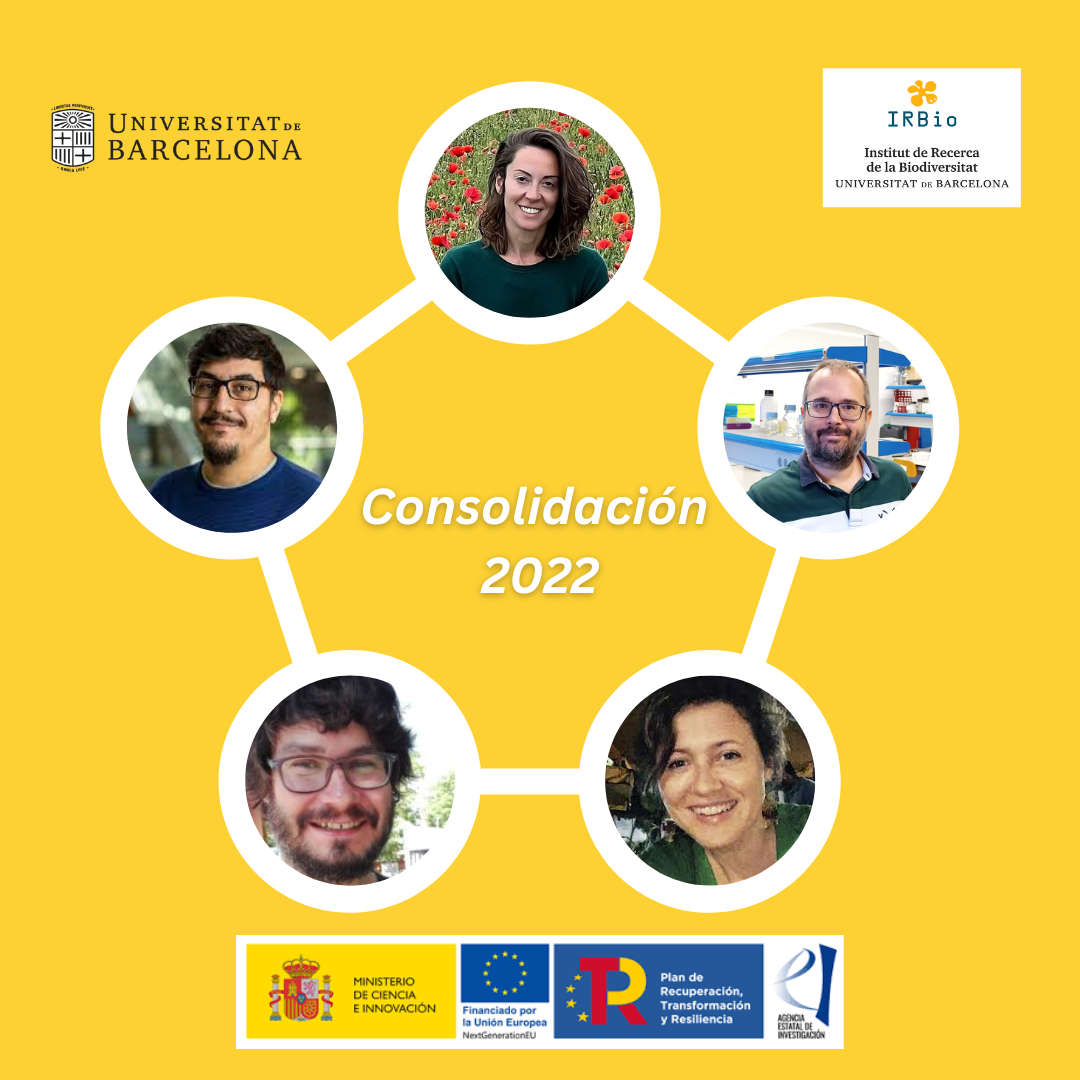5 IRBio researchers receive the "Consolidación Investigadora 2022"
The aim of the call is to consolidate the professional career of national and foreign researchers, to develop their research career within the Spanish Science, Technology and Innovation System. These grants contribute to improving the retention and attraction of talent by implementing a predictable and stable scientific career.
The IRBio researchers who have received funding for their project and an opportunity for professional stabilization within 2 years have been:
Jesus Lozano Fernandez; Research Group in Evolutionary Molecular Genetics. Their project will generate new genome assemblies of a group of arthropods, the chelicerates, in order to better understand their terrestrialization process, that is, how their ancestors conquered the terrestrial environment and adapted to it.
Yolanda Melero Cavero; Ecoevolutionary responses of animals to global change - EcoEvoChange. The project "Successful urban species: Eco-evolutionary dynamics of species adapted to urban environments, SATURNO", evaluates how adaptations and phenotypic responses modulate the population dynamics of species with different success rates (presence and abundance) in new conditions of the urban environment; and how these dynamics interact with the evolutionary responses of species. The project uses the lepidopteran populations of the cities of Barcelona and Madrid as a study system.
Carlos Carreras Huergo; Marine Biodiversity and Evolution (MBE) Research Group. The Genome Diversity for Sea Turtle Management and Conservation (GenoMarTur) project aims to characterize genome diversity in three species of sea turtles and apply this valuable information to address key research questions in this targeted group of organisms. to improve its management and conservation. Therefore, complete genomes of a small selection of individuals of each species will be sequenced throughout the geographic distribution to characterize the diversity of genomes in terms of structural and sequence variants.
Rocío Pérez Portela: Marine Biodiversity and Evolution Research Group (MBE). The "Intraspecific and interspecific biological processes underpinning the adaptability of marine invertebrates to ocean acidification (ACIDOMIC). proposal aims at understanding the biological strategies of marine species with calcareous skeletons to overcome the effects of ocean acidification, using a common, commercially exploited echinoderm found widely distributed along a natural pH gradient in a CO2 outflow vein at Fuencaliente (La Palma, Canary Islands).
Ignacio Maeso Martin: Evolution and Development Research Group (EvoDevoCat). Project: "Understanding the bases of the recurrent evolution of Arc neural genes through the domestication of transposable elements" (REARCTE). Although transposable elements (or jumping genes) and retroviruses are generally considered as parasitic or "selfish" elements, the truth is that recurrently in different lineages of animals and plants, these elements have been domesticated by their host genomes acquiring new functions. This project proposes that the intrinsic molecular characteristics of these transposable element proteins could predispose them to acquire functions with a completely different biological meaning, favoring their co-optation and domestication in animal lineages. The project aims to find out if these exogenous genes are integrated into pre-existing cellular networks and how the recurrent evolution of the same characteristics can reveal how the same evolutionary forces have impacted different lineages.
Congratulations!
